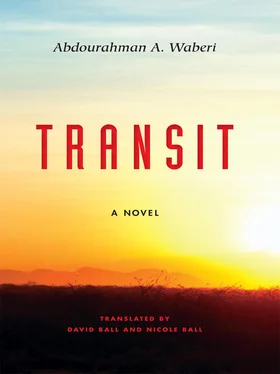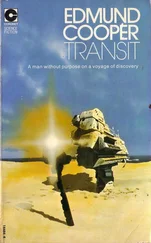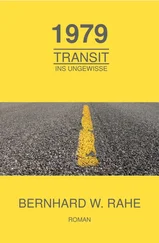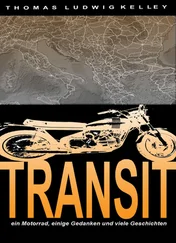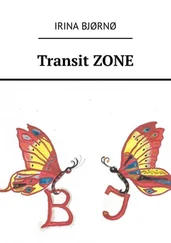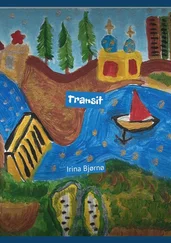Abdourahman A. Waberi
Transit
To Émile Olivier,
IN MEMORIAM
To my mother and my brother Ahmed
and to Lucien and Azeb Roux,
Jean-Dominique Penel,
and Ali Coubba,
AS A TOKEN OF FRIENDSHIP
Thank you, my land; for your remotest
Most cruel mist my thanks are due,
By you possessed, by you unnoticed,
Unto myself I speak of you.
And in these talks between somnambules
My inmost being hardly knows
If it's my demency that rambles
Or your own melody that grows.
— VLADIMIR NABOKOV From The Gift, translated from the Russian by Michael Scammell with the collaboration of the author (New York: G. P. Putnam's Sons, 1963), p. 68.
Transit is as fresh and relevant today as when it first appeared in France in 2003. This is a terrible — and wonderful — thing to say.
Terrible, because its picture of an impoverished country ravaged by war and repression is still the reality of life in Djibouti, that little country squeezed between Somalia, Ethiopia, and Eritrea at the edge of the Horn of Africa. The drought that devastated these countries was not the only cause of the famine that reached catastrophic proportions in 2011; it merely aggravated the conditions we see through the eyes of the characters of Transit , even if those characters were created nearly a decade ago. Terrible, too, because its portrayal of their desperate attempt to flee the country is still relevant today — and not only in Djibouti.
But the freshness and relevance of Transit is also wonderful, as Waberi's creations live in our minds the way characters in real works of literature do. The chapters in Transit are a succession of monologues by each of the characters in the novel: Bashir, a very young veteran of Djibouti's civil war; Harbi, a Djiboutian intellectual and an opponent of the regime; Harbi's French wife, Alice, and their son, Abdo-Julien; and Abdo-Julien's grandfather Awaleh. Their interlocking voices, by turns poetic and critical, tell their stories and the story of their country, giving us Djibouti's history, politics, and physical, economic, and moral landscape in their own language, their own style. All of them propel the action toward its end — an end fraught with political meaning.
One character gives us the same kind of pleasure we have in reading great tragicomic works of literature: Bashir, the poor, adolescent ex-soldier. His monologues are delivered in a slangy, comical language very much his own, a mix of naïveté and sly, often cynical, observation. He's the one who reveals the real condition of the country and all the horrors perpetrated during the civil war and after — child soldiers, arms trafficking, drugs (the ever-present khat and “pink pills”), random killing, hunger — and exposes France, the former colonial power, as a hypocritical arbiter between the warring camps.
As translators, we must say Bashir gave us a hard time. How to turn into English Waberi's invention of a spicy, lower-class, “incorrect” French spoken by a shrewd but uneducated boy? Our admiration for Waberi's creation was mixed with anxiety. The worst thing one could do, we felt, would be to flatten him into ordinary normative English: the character would simply disappear. On the other hand, we didn't want him to sound like one of the ghetto characters in the HBO series The Wire: he's not an African American kid from the projects but an adolescent from Djibouti. And somehow, he should sound like that in English. The author suggested we turn to Ken Saro-Wiwa's Sozaboy , another first-person narrative of civil war in Africa, and that did help in a number of ways. First, Sozaboy gave us a model of “incorrect” African English (“A Novel in Rotten English” is its subtitle), which, like Bashir's French, seems spoken rather than written. (But here, too, we had to be careful; unlike Saro-Wiwa's narrator, Bashir is not a Nigerian, and there's no reason why he should sound like one.) And then, we could see how Waberi was inspired by that magnificent novel: in Sozaboy too, the horrors of war and the abuses of power are related with great simplicity by a very young man. Comparing the two works increased our appreciation of the essentially comic nature of Waberi's invention, however dark the comedy may be. Saro-Wiwa's Sozaboy is, finally, a harrowing and depressing novel; Waberi's Transit has something almost upbeat about it — above all, paradoxically, Bashir's account of murder and mayhem. His satiric relation of the recent history of the Horn of Africa and his quick portraits of Djiboutian political leaders are often quite funny: the use of the faux-naïf to deflate political pretense is a tried and true satiric technique, and Waberi does it well. We can only hope that we did him justice when we brought Bashir's voice into English.
Not everything in the literary universe of Transit is dark comedy, far from it. The voices of other characters are often lyrical, and here, too, we can only hope that we were able to render that very different tone in English. The novel also presented us with bitter evocations of Djibouti's colonial past and sometimes nostalgic evocations of the nomadic past and the customs of its people, themes that appear again and again in the author's work.
It is worth noting that Waberi gave his collection of poems a title that might be translated as The Nomads, My Brothers, Go Out to Drink from the Big Dipper (Les Nomades, mes frères, vont boire à la Grande Ourse). This element of the traditional life of the region is transmitted through the grandfather, Awaleh. Under different names, the grandfather figure, a transmitter of tradition, appears as a recurrent figure in Waberi's work. He is a teller of tales. A former nomad, Awaleh deplores colonization and progress, both of which have led to the loss of cultural and tribal identity. “Luckily I'm here to connect the threads of spiritual and temporal things, the visible and the invisible,” he says. He is a pious, tolerant Muslim. In one poetic chapter addressed to his grandson, he celebrates the nomads and their resistance to the colonial administration. In another particularly eloquent chapter, he describes scenes of famine (and takes a dim view of international aid organizations). One of his favorite interlocutors is Harbi's French wife, Alice. She and their son, Abdo-Julien, transmit through their discourse — and their very existence — other themes and ideals dear to Waberi's heart: multiculturalism, tolerance, and métissage.
Two of the main characters (Harbi and Bashir) are speaking from the Roissy airport. The overarching structure of Transit , and the connection between Bashir and Harbi, is only revealed in Bashir's last monologue, although there are hints of it earlier. The structure is a cleverly devised loop, as the reader will discover. After Bashir's last monologue, at the very end of the novel, we find a poetic epilogue that takes us back to the prologue: Harbi, speaking for all the exiles on our planet, is in the airport of Roissy-Charles de Gaulle, waiting — waiting to enter France, like Bashir, where they will live the lonely, miserable life of most refugees, as we sense from what Harbi has already told us about his fellow exiles. We have come full circle.
Abdourahman A. Waberi was born in 1965 in what was then French Somaliland (the French gave it another name in 1967); it became Djibouti when it gained its independence in 1977. In 1985, Waberi won a scholarship to study in France. He lived, studied, and worked there until 2009, when he became a Fellow in the Humanities at Wellesley College and then accepted a position at the Claremont Colleges in California, where he currently teaches. He spends his time between the United States and France and remains a nomad at heart, as he likes to say: he travels widely, and Africa is often one of his destinations. He has written four novels, three books of short fiction, a book of poems, and numerous articles and essays. Waberi is one of the leading francophone writers of his generation, internationally recognized, one of those to whom the French novelist J. M. G. Le Clézio dedicated his Nobel Prize for Literature in his acceptance speech. Translated into over half a dozen languages, Waberi's work explores the themes of migration, colonial and postcolonial suffering, and resistance with great linguistic invention and originality.
Читать дальше
